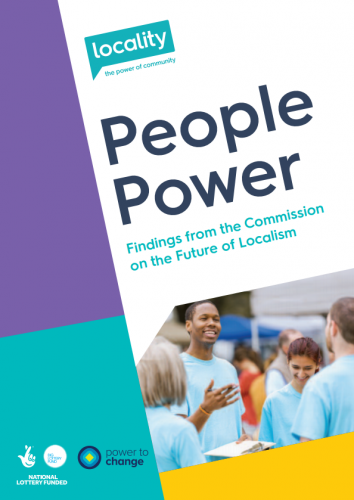For years now, politicians have been promising to give away power. There has been growing acceptance that the scale and complexity of our social challenges are so great that the centre cannot hope to address them on their own. The Commission on the Future of Localism has gathered evidence on the outcomes and impact of recent initiatives to decentralise, with particular focus on the Localism Act 2011 and the Cities and Local Government Devolution Act 2016. Locality finds that these initiatives have stopped short of the radical reframing of power we require.
Advocates for localism too often fall into a narrative trap of arguing for power to be ‘handed’ from the centre ‘downwards’ to communities, inevitably in ever diminishing packages. The consequence of a representative democracy is that expression of democratic participation can become largely transactional. Power is ‘given’ from the electorate to MPs and councillors at elections, and further political and policy engagement is too often limited to consultation, rather than collaboration and conversation.
Reinvigorating localism requires a fundamentally different conception of power which puts people and communities at the starting point. Communities are already powerful – often far more than people recognise – but this power can lie latent, untapped, or simply ignored.
Strengthening community power requires action in four key domains of localism:
- Institutions for localism
- Powers and mechanisms for localism
- Relational localism
- Capacity for localism
Table of Contents
About the Commission
Foreword
Executive summary
Introduction
What are the sources of community power?
What blocks community power?
Strengthening community power: reimagining localism
Institutions for localism: governance structures
Powers and mechanisms for localism
Relational localism: changing culture and behaviour
Capacity for localism: community infrastructure and participation
Our full evidence and findings
Our call to action
Appendix
Format





